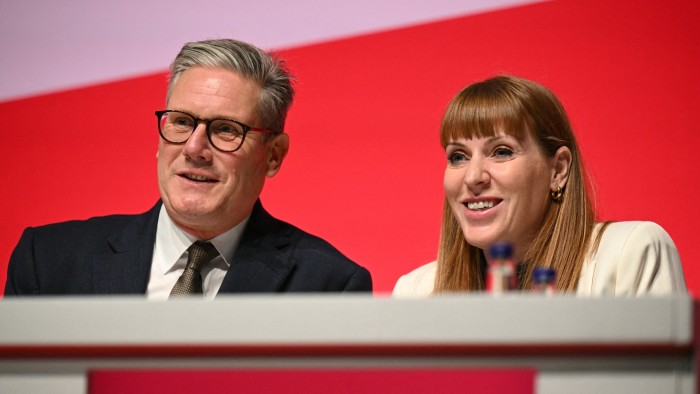Unlock the Editor’s Digest for free
Roula Khalaf, Editor of the FT, selects her favourite stories in this weekly newsletter.
Sir Keir Starmer has rejected calls from senior Labour figures to fill a growing fiscal hole with big tax rises, warning: “I don’t think you can tax your way to growth.”
Starmer is under pressure from the likes of deputy leader Angela Rayner and former prime minister Gordon Brown to increase taxes to pay for higher public spending, including on welfare.
But the prime minister insisted the biggest problem facing Britain was a lack of growth. “The question is how do we grow the economy and create wealth,” he told the BBC’s Today programme.
“I don’t think you can tax your way to growth. We have high tax as it is.”
Starmer’s comments will reassure those such as Britain’s wealthy and the banks that have found themselves in the sights of some Labour MPs ahead of the autumn Budget.
Many economists believe chancellor Rachel Reeves will have no choice other than to raise taxes, as her self-imposed fiscal rules become an increasingly tight straitjacket.
Reeves left herself just £9.9bn of “headroom” against her borrowing rules at her spring statement in March, but since then has seen the cost of servicing government debt rise.
UK 10-year gilt yields — the benchmark debt watched most closely by investors — have risen more than equivalents in any other G7 country barring Japan over the past year. Yields rise as prices fall.
Meanwhile Starmer, under pressure from Labour MPs, has announced plans to retreat on Reeves’ £1.5bn plan to remove winter fuel payments from better-off pensioners.
The prime minister has also indicated he will scrap the two-child benefit cap that was introduced by the last Conservative government — a move that would cost around £3.5bn — while Labour MPs are simultaneously demanding that plans to cut £5bn from the welfare budget are watered down.
Reeves could face a further blow in the autumn if — as expected — the independent Office for Budget Responsibility revises down its forecasts for the UK’s future growth, which is widely seen by economists as too optimistic.
Given the tight fiscal situation, Starmer on Monday refused to guarantee that a Labour government would honour its “ambition” to raise defence spending from 2.5 per cent in 2027 to 3 per cent in the next parliament.
“I’m not going to indulge in fantasy politics of plucking dates from the air,” he said.
However, he added pressure on Reeves by appearing to suggest that his retreat on the winter fuel payment — which he previously said would happen as a “fiscal event” such as in the autumn Budget — could be carried out before cold weather returned later in the year.
“If we want to look again at which pensioners are eligible, the sooner we have clarity on that the better,” he said.
Daisy Cooper, Liberal Democrat deputy leader, said: “The right hand doesn’t know what the left hand is doing. Number 10 needs to pick up the phone to Number 11 and announce the details of their apparent U-turn without further delay.”
In recent weeks it emerged that Rayner in March called for a series of tax rises to boost the public finances, including increasing corporation tax on banks and scrapping the tax-free allowance on dividends.
Brown, who has called for an end to the two-child benefit cap, has suggested higher taxes on banks and the gambling industry.






